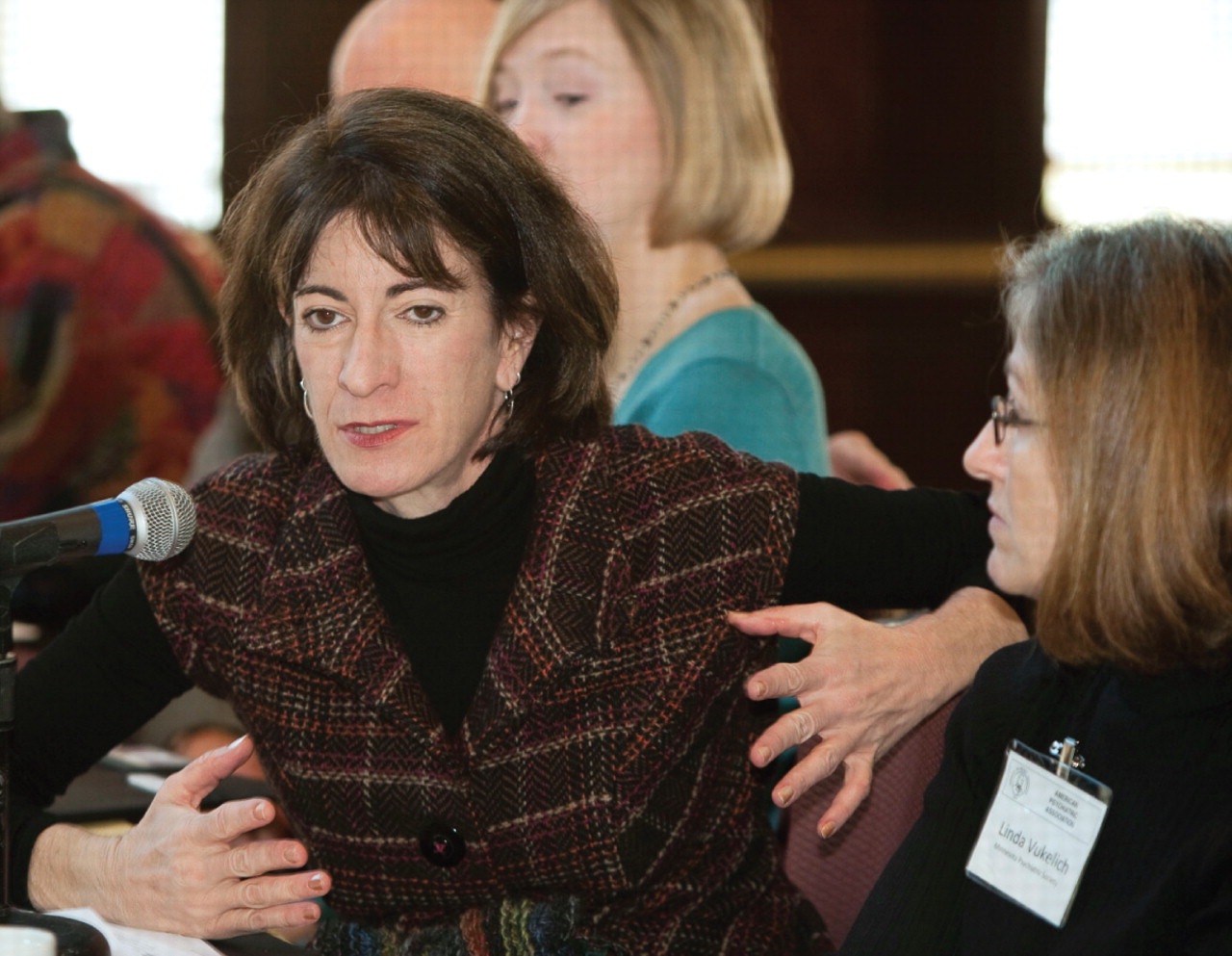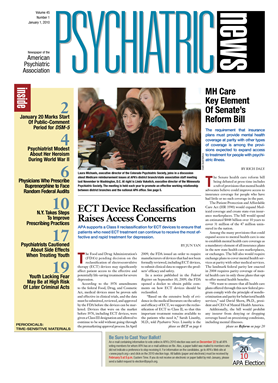“Collaboration” and “sharing resources” are among the key watchwords for district branch (DB) executive directors these days, as they try to steer their organizations through the jagged rocks of a lingering recession.
Like his colleagues in every other district branch, Kery Hummel, executive director of the Maryland Psychiatric Society (MPS), has struggled to find effective financial offsets amid a historic downturn that has led some psychiatrists to drop their association memberships.
Further complicating the financial challenge for Hummel and his peers has been the loss of income from pharmaceutical companies as APA and other psychiatrist groups have erected new fiscal firewalls to address concerns of undue influence on physicians' practices.
Among Hummel's initiatives are efforts to collaborate with groups of child psychiatrists and geriatric physicians to cover the administrative costs of running MPS in exchange for providing them with staff support.
Hummel's approach is becoming a common tactic of DB executives for responding to the ongoing economic turmoil. Many DB executives took advantage of an invitation from APA to come to Washington, D.C., last November to share ideas and strategies on the subject.
“We're trying to create revenue streams that are not [membership] dues dependent,” Hummel told Psychiatric News. “If we don't have the revenues, then we have to cut back on the services to our members.”
A similar resource-sharing effort is under way in Mississippi where the DB was given office space by the state affiliate of the National Alliance on Mental Illness (NAMI). In exchange, the Mississippi Psychiatric Association (MPA) provides state legislative lobbying services for NAMI, as long as their goals are not in conflict.
“We're a small district branch to begin with, so the recession has had a big impact on us,” said Angela Ladner, MPA executive director.
Strategy Already Paying Off
The new lobbying relationship has proven quite symbiotic, with Ladner receiving a quicker response to her calls for grassroots lobbying on specific pieces of state legislation from NAMI members than individual psychiatrists have typically had the time to provide.
The idea of sharing office space with other mental health advocacy groups was intriguing to Rebecca DeFilippo, executive director of the Eastern Missouri Psychiatric Society. The search for money-saving ideas was one of the reasons she came to the November meeting, she said. However, she found some initiatives better lend themselves to imitation than others.
“What works for one district branch doesn't necessarily work for another,” she noted.
One new collaboration could provide a useful model strategy to other psychiatrist groups. The Indiana Psychiatric Society (IPS) and the Kentucky Psychiatric Medical Association opted to hold a combined annual symposium in April that is expected to attract a larger number of attendees than either would separately. Organizers also expect the combined meeting will have lower costs—which the DBs will split—than the total cost of two separate meetings, said Sara Stramel, IPS executive director.
Moving Beyond Collaboration
In addition to the efforts of DBs to cut expenses by pooling resources with other groups, many DBs have taken steps to secure new sources of income.
The Maryland DB, for example, has attempted to replace lost pharmaceutical advertising with more general, nonmedical advertising aimed at the MPS's high-income members. Additionally, the district branch may help its members seek federal grants that would be used to match psychiatrists with community health centers that are required to include mental health services.
The MPS also acquired a paying contract last year to provide psychiatrists who could perform peer reviews for the state licensing board of psychiatrists who have had complaints filed against them.
“Each district branch has a very valuable resource, and that's our members,” Hummel emphasized.
Similarly, the IPS has sought to “raise psychiatrists' profiles” in Indiana to better influence public policy and state health care funding decisions. Among the planned publicity-campaign events are community roundtables that the DB will sponsor on timely mental health topics affecting local communities.
Several DBs also have moved aggressively to all-digital communications to eliminate printing and delivery costs. Some executives were concerned, however, that such a switch would be disruptive to their members and plan to phase it in over time, while other DBs simply told members about the switch and dropped all printing, with no complaints.
“We're trying to challenge the conventional wisdom of how we have always done things,” said Robin Huffman, executive director of the North Carolina Psychiatric Association and chair of the DB executives' group.




